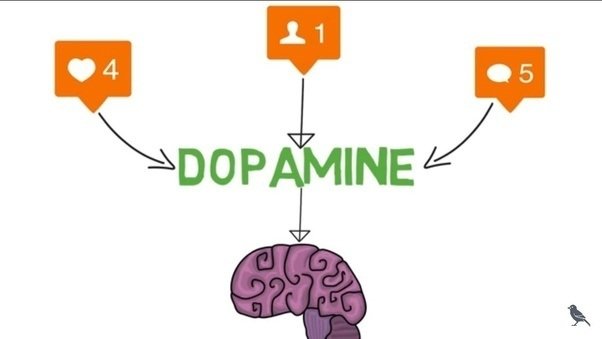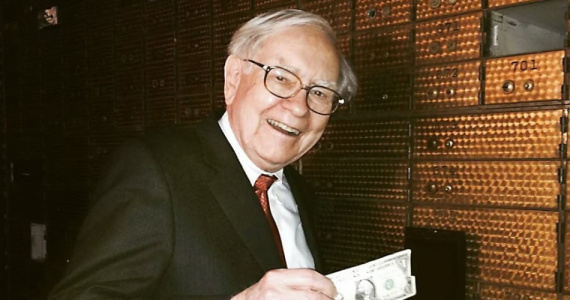The social media addiction has persisted for quite some years now. As it turns out, such an addiction was premeditated. In fact, platforms were designed in order to keep us collectively distracted from the real world.
38-year-old Sean Parker, founding president of Facebook who resided in 2005, expressed how the platform was created and his candid response was surprising. In an event in Philadelphia, he revealed that while the platform was being designed, the main focus was to find a way which consumes the most time and grabs the conscious attention of its users.
And the answer to this question is simpler than one would think, as they have used a simple psychological trick – dopamine release. The introduction of likes and comments in the platform allowed for a lot of positive reinforcement to be experienced by the person who posted. As Parker also said, each time a person receives a like or comment, they experience a dopamine hit.
 Sean Parker, founding president of social media platform Facebook
Sean Parker, founding president of social media platform Facebook
You may wonder, what does dopamine have to do with our likes? What is dopamine, even?
In fact, it is one of the major brain chemicals responsible for our happiness, Along with 19 other neurotransmitters, dopamine carries with it messages between neurons, passes them along to nerves and other cells, and makes us feel the emotions we do feel. They are very important for their role in heart and lung function, as through dopamine our brain receives the messages that we need water or to take a deep breath.
The neurotransmitter’s importance began to be highlighted in the 1950s after researchers came to conclusions in relation to physical movement, or the disease of Parkinson’s in particular.
It was found that a deficiency in dopamine causes the stiffness and slow movement a Parkinson’s patient experiences. Numerous studies after that came to find that dopamine is most closely related to rewards that we experience, such as desire, addiction, ambition etc..
 The effects of dopamine were first examined in a rat experiment in the 1950s
The effects of dopamine were first examined in a rat experiment in the 1950s
Experiments were carried out in order to discover how we learn, and the role of dopamine in learning. In one of the studies by Schults et. al., a large dopamine amount was released when rats saw images of apples, long before they could bite into them. This proved their point of anticipation of reward, which it is shortly received, the behavior is maintained. A lot of similar studies were carried out and came to conclusions that dopamine has serious implications for our happiness.
What social media platforms have been doing, is abusing this very simple fact of how humans behave in response to rewards. The release of dopamine is a desirable sensation, and people will do anything to meet such needs and desires.
 The chemical symbol of the dopamine neurotransmitter tattoed on a forearm, as a lot of people have been doing to celebrate happiness
The chemical symbol of the dopamine neurotransmitter tattoed on a forearm, as a lot of people have been doing to celebrate happiness
This neurotransmitter is equally as important as others, such as norepinephrine and asparagine, however, the fame it has received is incomparable. There is a large number of people who tattoo the chemical symbol of it, as people have learned to make the association between it and happiness. A British psychologist, Vaughan Bell, had named the neurotransmitter the Kim Kardashian of molecules.
Now its fame has reached Silicon Valley, who uses it as the sticky molecule – regarding its addictive nature. They use it nor only for the creation of social media platforms, but for apps and games too.
Although great for developers and the companies supporting them, not everyone is as happy about people using this power over others. David Brooks, a New York Times writer wrote a piece on the evil of technology. He called companies out on hijacking people into compulsive loops.
They achieve such results through rewards given at irregular intervals, which is the long known secret behind the success of slot machines. Those, too, were created using BF Skinner’s operant conditioning techniques on reinforcement of behavior.
The same way how dopamine is released when a gambler gets lucky, it is also released when we get social affirmation on such sites. The irregular intervals at which this happens, due to everybody’s different agendas, different time zones, algorithms etc., this makes the affirmations unexpected and exciting, leaving us compulsively scrolling our life away.

The use of the so-called persuasive technology to direct other peoples’ behavior is similar to addiction as experienced in other forms. The rewards achieved could be real or perceived, as in the case of social media reaffirmation through likes and comments. But the misuse of this natural phenomenon is becoming problematic, despite the new nature of it. Denmark’s $1M Brain Prize 2017 winner was Schults regarding his work on dopamine.
He recognizes the dangers of getting people hooked on technology through such systems of reinforcement, and encourages researchers and companies to proceed with caution, as negative effects are more than expected.





